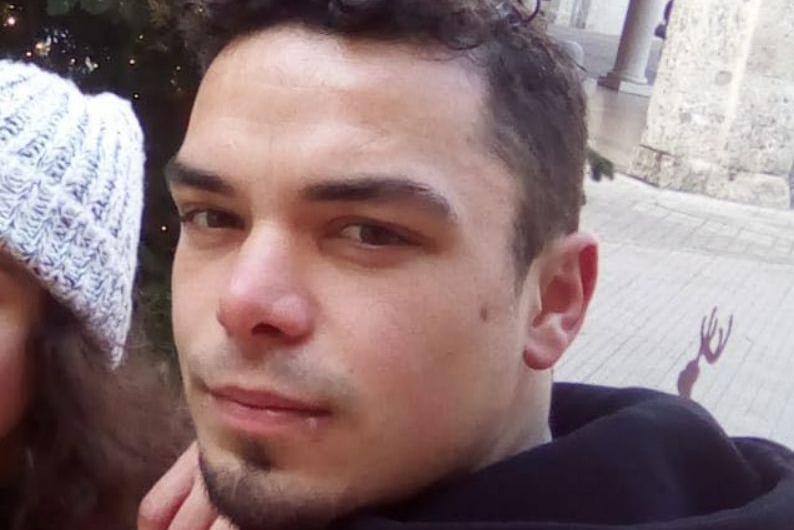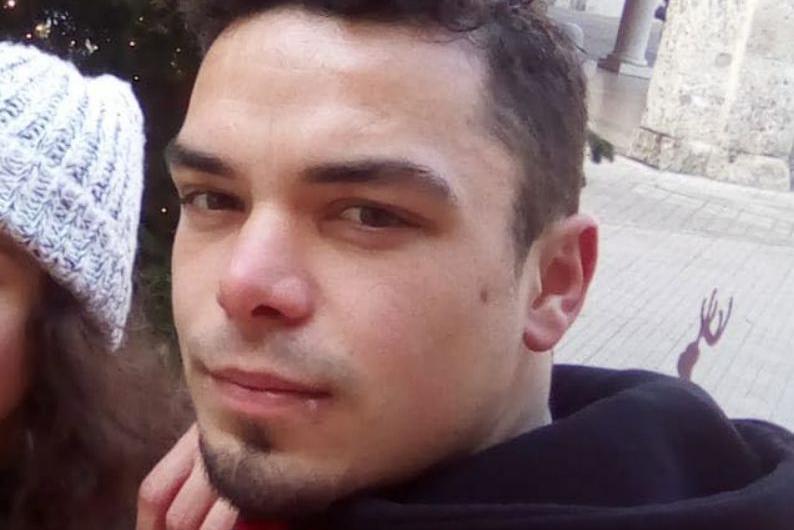Family berates Home Office and NHS over barge death

Leonard Farruku took his own life on the Bibby Stockholm barge
- Published
An asylum seeker who took his own life on the Bibby Stockholm barge would still be alive were it not for failures in his care by the Home Office and NHS mental health workers, his family has said.
Leonard Farruku, 27, was found dead in December 2023 on the government's former accommodation vessel for migrants, which was moored at Portland Port, Dorset.
An inquest heard evidence that he was suffering from poor mental health in the weeks before he was placed there in September 2023.
His sisters Marsida Keci and Jola Dushku said he was not assessed, supported or treated before his death. The Home Office said it was considering the case.
In a statement released through their solicitors, external, the sisters said: "We firmly believe that Leonard was severely mentally unwell between July and December 2023 and in need of urgent assessment and treatment.
"Instead of being helped by the English authorities, he was placed in the hostile and completely unsuitable environment of the barge.
"We believe that if Leonard had received proper assessment and treatment in August 2023, he would still be alive today. We miss him every day."

The Bibby Stockholm housed male asylum seekers at Portland Port
Mr Farruku began to show troubling behaviour while staying in a migrants' hotel in Paignton, Devon, in July 2023, the inquest previously heard.
He was aggressive, told hotel staff he could see "invisible things" and asked for his deceased father to be brought to his room, the sisters said.
A mental health crisis team from Devon Partnership NHS Trust came to see him while he was out and did not make further visits, the hearing was told.
The sisters said: "It seems that everyone who had repeated contact with Leonard at that time knew that he was really unwell.
"We just can't understand why mental health services only tried to see him once and then did nothing despite everything they had been told."
On the day of Mr Farruku's transfer to the barge, Torbay Council in Devon raised a concern about his health, the inquest heard.
However, the Home Office did not "look at their own safeguarding database" and took no action, the sisters said.

Mr Farruku was found dead in a shower cubicle on the vessel
Concluding the inquest on 2 October 2025, Dorset Coroner Rachael Griffin said the Home Office had "missed opportunities" to intervene.
She said there was only "weak evidence" that he had suffered a psychotic disorder, instead describing him as a "quiet man who was miserable at his life situation".
The family's solicitor Christina Bodénès said: "Leonard's case is a tragic example of the dangers of the Home Office's policy of placing vulnerable asylum seekers in unsuitable accommodation without having a proper system in place to assess their vulnerability and risk.
"The Home Office had a wealth of information indicating that Leonard was seriously unwell at the time they made the decision to place him on the barge, but took none of this into account."
Deborah Coles, from the charity Inquest, which examines state-related deaths, said: "This inquest has laid bare the fatal consequences of placing people like Leonard Farruku on barges in de facto imprisonment where safeguards exist only on paper.
"These harmful policies isolate people from community, support and healthcare, and deny them dignity.
"Amid racist rhetoric around immigration, we must remember the real human cost."
In a statement, Devon Partnership NHS Trust said: "This is a very sad case and we extend our sympathies to the family of Mr Farruku.
"As the coroner made clear, we have already made changes to our policies and procedures in relation to the assessment of people living in the community."
A Home Office spokesperson said: "This was a tragic incident and our thoughts remain with Leonard's family and everyone affected.
"The coroner has delivered their findings and we are now carefully considering them."
If you have been affected by this story or would like support then you can find organisations which offer help and information at the BBC Action Line.
Get in touch
Do you have a story BBC Dorset should cover?
You can follow BBC Dorset on Facebook, external, X (Twitter), external, or Instagram, external.
- Published2 October

- Published22 September

- Published16 September
